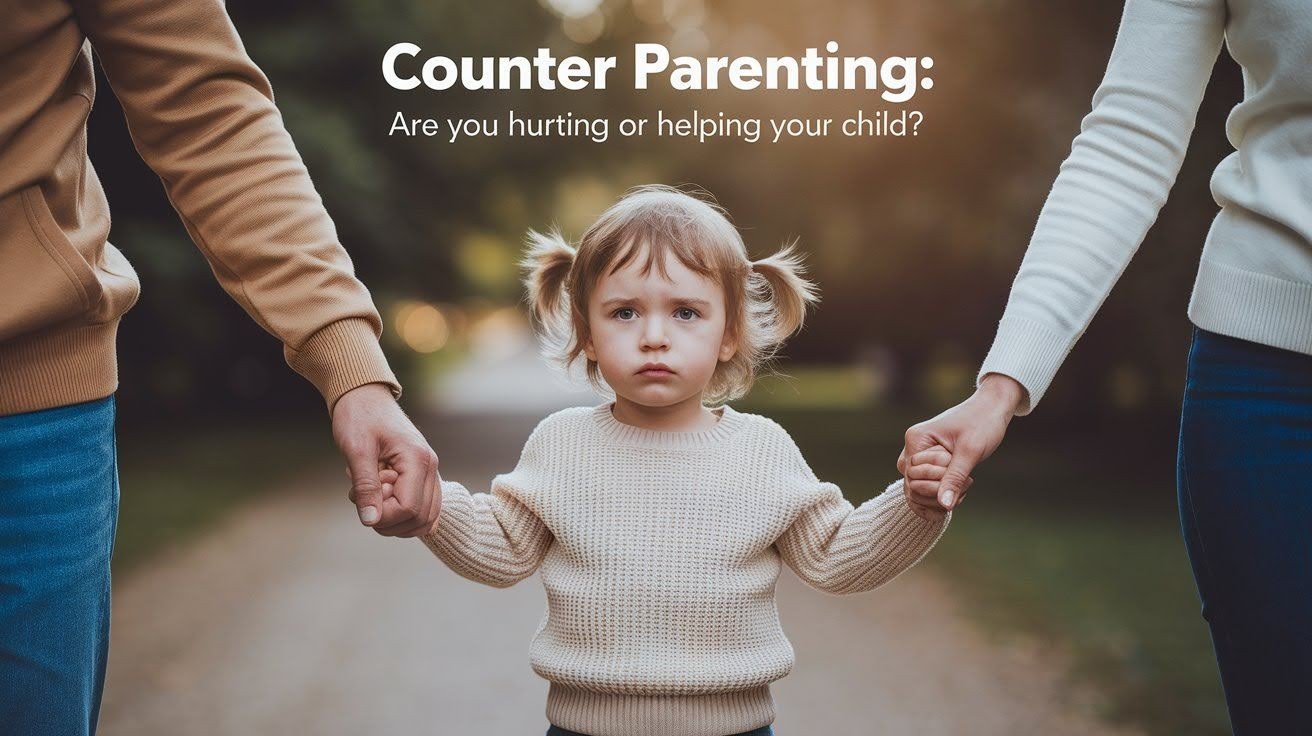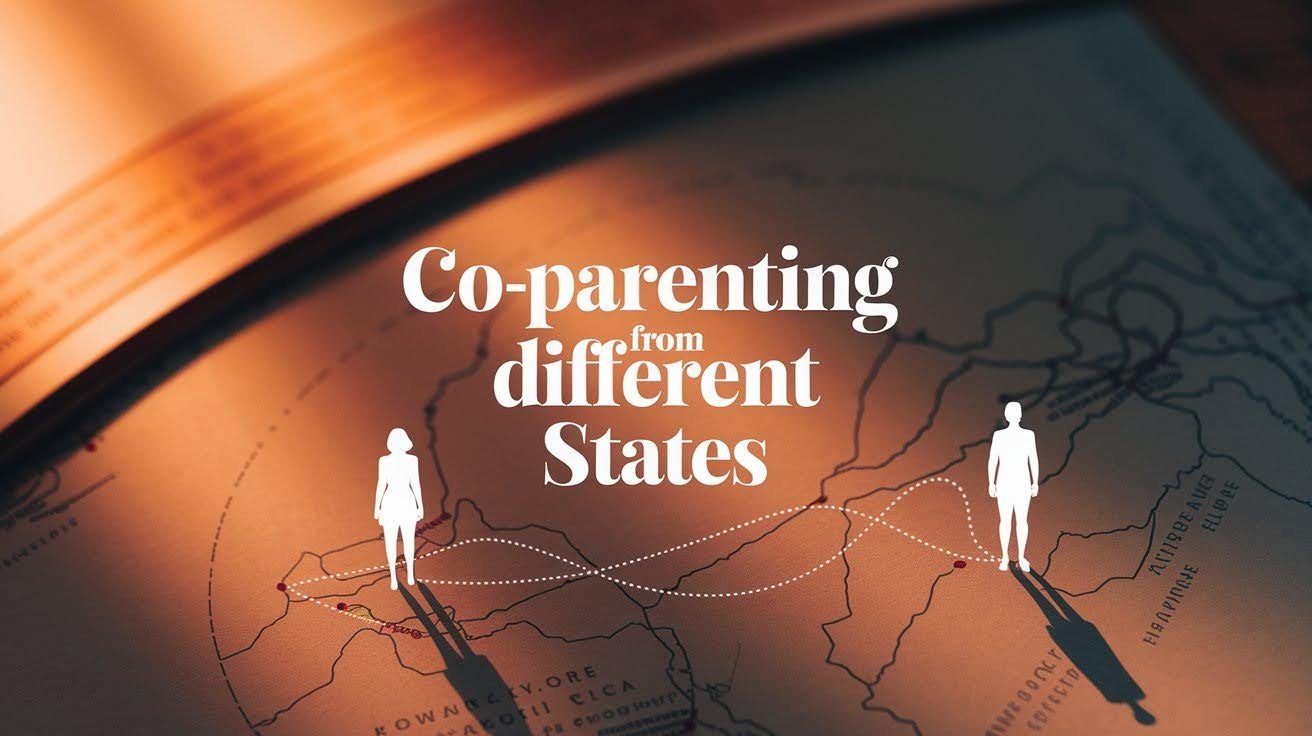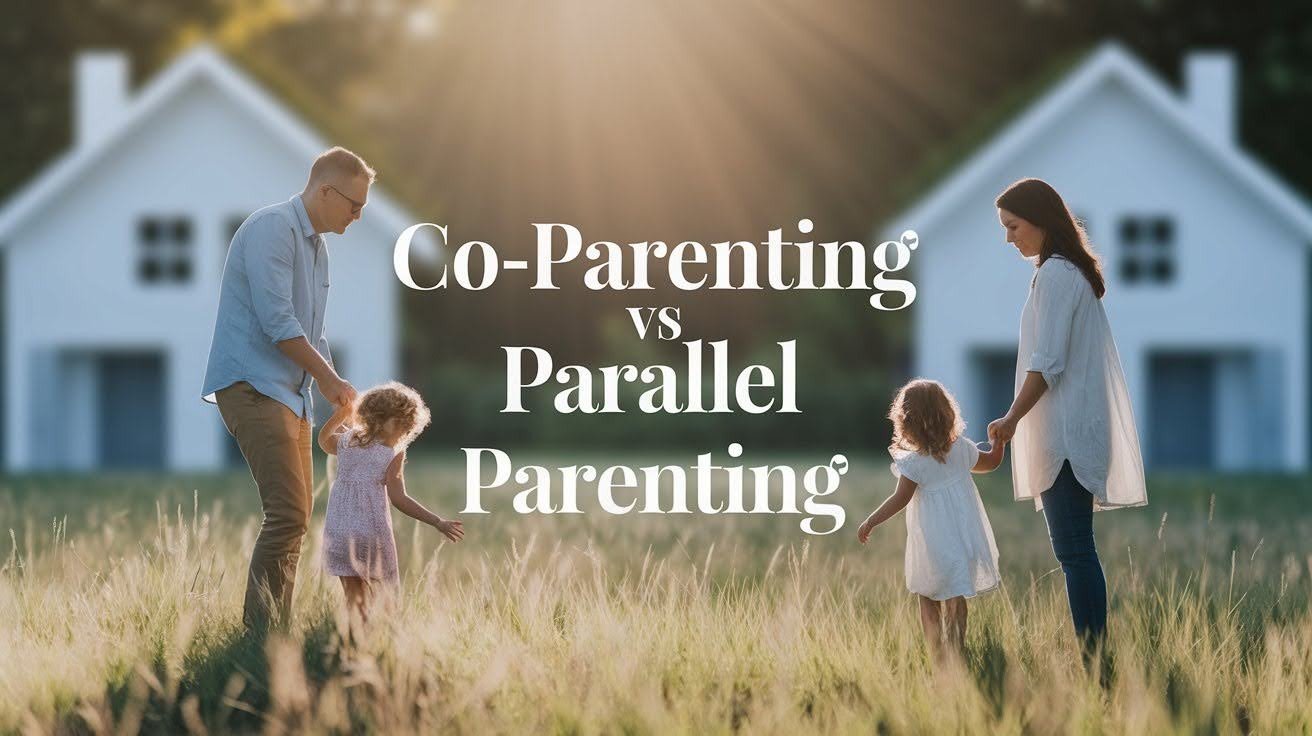You think your ex is just being the “fun parent.” You’re wrong.
What looks like gentle parenting might actually be counter-parenting, a calculated form of emotional abuse. I’ve helped families recognize this pattern for over a decade.
Your ex isn’t spoiling your child out of love. They’re doing it to hurt you. The 2012 Saunders Study proves abusive parents systematically undermine the other parent’s efforts.
This article will help you spot counter-parenting and protect your family. You’ll learn real strategies that work.
If something feels wrong about your ex’s sudden permissiveness, trust your instincts. Counter-parenting isn’t about your child’s happiness. It’s about control and revenge.
I’ll show you exactly how to fight back with practical tools and legal strategies.
Ready to take back control?
What is Counter Parenting?

Counter-parenting is the opposite of working together. One parent actively fights against the other’s efforts. This isn’t protection – it’s revenge.
Also called “spiteful disregard,” it targets you through your child. Your ex knows exactly what they’re doing. They want you to suffer. Every action undermines your parenting on purpose.
Recognizing Counter Parenting Behaviors and Patterns

You need to spot the signs early. Counter-parenting follows clear patterns. Once you see them, you can’t unsee them.
Warning Signs of Counter Parenting
These behaviors reveal when one parent is working against, rather than with, the other in raising children.
- They consistently put their own needs first: Counter parents always prioritize themselves over what’s best for the children or the co-parenting relationship.
- They paint you as the “bad parent” to your kids: They regularly tell your children negative things about you to damage your relationship with them.
- They turn your children against you on purpose: Counter parents deliberately work to create conflict between you and your kids through manipulation.
- They show the same harmful behaviors repeatedly: These patterns don’t change over time and become predictable ways of causing problems.
- They feel the need to make the other parent look bad: Unlike normal parents who focus on their children’s well-being, counter parents actively work to damage the other parent’s reputation.
Spiteful Disregard: When Counter Parenting Becomes Dangerous
The 2012 Saunders Study gave this behavior a name. “Spiteful disregard” puts children at real risk. This is a continuation of their old abuse. They used to control you directly. Now they control you through your child. Steve gave his son more candy to upset Cindy. Jacki fed her toddler choking hazards during video calls. These aren’t accidents.
The Narcissistic Counter Parent
Narcissistic counter-parents are the worst. They see themselves as the center of everything. Your child exists only to serve their needs. They want to control how your child gets raised. They want to become your child’s favorite parent. They feel wronged by the divorce. Your child becomes their revenge tool. Nothing else matters.
The Devastating Impact on Children and Families
Counter-parenting harms not only the child’s development but also the stability and well-being of the entire family unit.
- Children feel torn between two worlds: They don’t know which parent to trust or follow, creating constant confusion and stress that affects their daily life.
- Physical safety becomes compromised: When spite overrides safety, children can get physically hurt as they become weapons used against the other parent.
- Immediate behavioral and emotional changes appear: Children show psychological stress through behavior changes, sleep problems, and emotional outbursts that disrupt their normal development.
- Long-term self-esteem damage occurs: Children develop reduced self-confidence and low self-worth that can persist well into their adult years.
- Mental health issues extend into adulthood: The trauma creates lasting psychological problems that affect the child’s ability to function as a healthy adult.
- Future relationships suffer significantly: Children struggle with unhealthy boundaries and identity problems that make it hard to form stable, trusting relationships later in life.
- Targeted parents face constant attack and burnout: The non-counter parent experiences overwhelming stress, legal difficulties, blocked access to therapy, and systematic undermining that destroys their mental health.
How to prevent your child from counter-parenting?

Practical steps you can take to protect your child’s well-being and reduce the impact of a counter-parenting ex.
- Document everything with dates and details: Keep written records of all counter-parenting behaviors to build evidence for legal action if needed.
- Use the gray rock method with your ex: Stay calm and emotionally neutral during interactions to avoid giving them the reaction they want.
- Maintain consistent rules in your home: Keep your boundaries and expectations steady regardless of what happens at the other parent’s house.
- Trust your instincts when something feels wrong: If behaviors seem deliberately spiteful rather than genuinely caring, take action to protect your child.
- Consider legal intervention through parenting plan changes: Work with family law attorneys to modify custody arrangements when counter-parenting becomes harmful.
- Seek professional support from child therapists: Find specialists who understand post-separation abuse patterns to help your child process the confusion.
- Focus on building resilience in yourself and your child: Strengthen your emotional health and teach your child coping skills to handle the stress of being caught between parents.
Conclusion
Counter parenting isn’t your fault. Now you know the difference between genuine care and calculated manipulation.
You have the tools to protect your child. Document everything. Stay consistent with your rules. Trust your instincts when something feels wrong.
Your child’s safety comes first. Use the gray rock method with your ex. Seek legal help when needed. Remember – this behavior says nothing about you as a parent.
Recovery takes time, but healing is possible. Focus on building resilience in yourself and your child.
You’re not alone in this fight. Share this article with other parents who might need help. Leave a comment about your experience. Your story could help someone else recognize the signs.
Need immediate help? Contact a family law attorney or domestic violence advocate in your area.
Frequently Asked Questions
What is counter-parenting?
Counter-parenting is when one parent deliberately undermines the other parent’s efforts after separation. Unlike normal co-parenting disagreements, it’s done out of spite to hurt the other parent, not to protect the child. Also called “spiteful disregard,” it uses children as weapons in post-divorce conflicts.
How is counter-parenting different from being the fun parent?
The key difference is intent. Fun parents genuinely want their child’s happiness. Counter parents remove rules specifically to spite their ex and make them look bad. Counter-parenting prioritizes revenge over the child’s well-being, while fun parenting focuses on creating positive experiences.
What are the warning signs of counter-parenting?
Watch for patterns like: constantly portraying you as the “bad parent,” deliberately loosening rules to contrast with your structure, using parental alienation tactics, being overindulgent only to make you look strict, and consistently putting their own needs above everyone else’s, including the child’s safety.
How does counter-parenting affect children long-term?
Children exposed to counter-parenting often develop reduced self-confidence, low self-worth, and mental health issues extending into adulthood. They struggle with unhealthy boundaries, identity problems, and future relationship difficulties. These adverse childhood experiences can create lasting psychological damage requiring professional intervention.
What should I do if my ex is counter-parenting?
Document everything with dates and details. Use the gray rock method to avoid emotional reactions. Maintain consistent rules in your home. Consider legal intervention through parenting plan modifications. Seek professional support from family attorneys and child therapists who understand post-separation abuse patterns.








